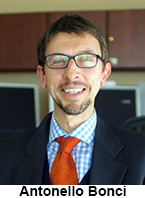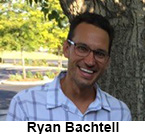Membership/Membership Career Resources/Interview with Antonello Bonci, Council Member
Interview with Antonello Bonci, Council Member
by Ryan Bachtell, ACNP Membership Advisory Task Force member
Q: How did you join council?
A: The process was really very simple. I have been at ACNP every year with one exception for the last 10 years or so. I really believe in what ACNP is trying to do. So people saw that I was very committed to being part of committees, to be part of the ACNP through my science, through my presence as a member doing whatever I was asked to do. At some point, a friend of mine suggested that I run for Council. So I threw my name in and I was pleasantly surprised that people voted for me.
Q: What does Council do?
A: A variety of things. We have feedback from the other committees; the program committee,membership committee, the diversity committee and so on. Those committees have questions for us. They come to us to discuss issues. And, we have joint meetings from time to time. We also keep a very close eye on the finances, of course. Anymatter that comes up from members

from any corner of ACNP comes up to Council and we discuss them. We try to find solutions. People may want to develop something new through ACNP. Sometimes people may want to create an award, discuss new ideas or initiatives. Other times people have issues with one matter or another. Basically, anything that has to be solved or any opportunity to make ACNP stronger, it comes to council at the end of the day.
Q: Give me your thoughts on what council might achieve during your tenure?
A: The priorities are always the same and we are continuing to work on them because they are still unsolved. The priorities are: How do we balance gender and ethnicity in the best way? How do we do we create the best opportunities for minorities to increase diversity? How do we get the best scientists to stay and to be active members of ACNP? How do we get junior scientists to join ACNP? How do we get clinicians to talk to basic scientists? How do we get the best translational science through ACNP? How do we represent the non-academic institutions that are doing science? There are many that are extremely important, from pharma to biotech to private companies. How to balance the portfolio of science which is so different and make them feel represented and a part of ACNP?
Q: How do you think council’s activities or influence may be misunderstood?
A: I don’t know what may be misunderstood. I see myself as a voice for the members. I can bring any issue to the table. Anyone can bring any issue to the table at Council. The idea that I see from non-members, is that ACNP is a relatively elite group, for lack of a better word. We are elite in a sense of quality. Absolutely, yes. We want to privilege the best scientists from every corner. But, it does not mean that we do not allow people to come in. The number of new slots is relatively small and we constantly obsess about quality of science from wherever it comes. So, I don’t know if there is an easy solution because we don’t want ACNP to become a 30,000 person meeting. That’s impossible. Quality is the ultimate goal. Quality and balance, to increase diversity.
Q: How have you seen the College change over the years and what direction do you see the College moving toward in the future?
A: The college has changed dramatically over the last 10 years. The amount of basic science that is represented and the amount of basic scientists that are members now, I think, has significantly increased. Their science is more and more predominant and it is driving a lot of the clinical science. What I see now, because of all of these amazing new basic science techniques, the clinicians are changing in a sense that we see more and more of a mix of traditional clinical science based on medication and testing to now a more scientific based proof of concept ideas and implementation. So ideas that are stemming from genetic and molecular techniques such as optogenetics and DREADD are being translated into the clinic through very promising techniques such transcranial magnetic stimulation and deep brain stimulation. Overall, I think there is greater interaction between basic science and clinicians that allows for these non-traditional medication clinical approaches. My prediction is that we will see more and more of that interface.
